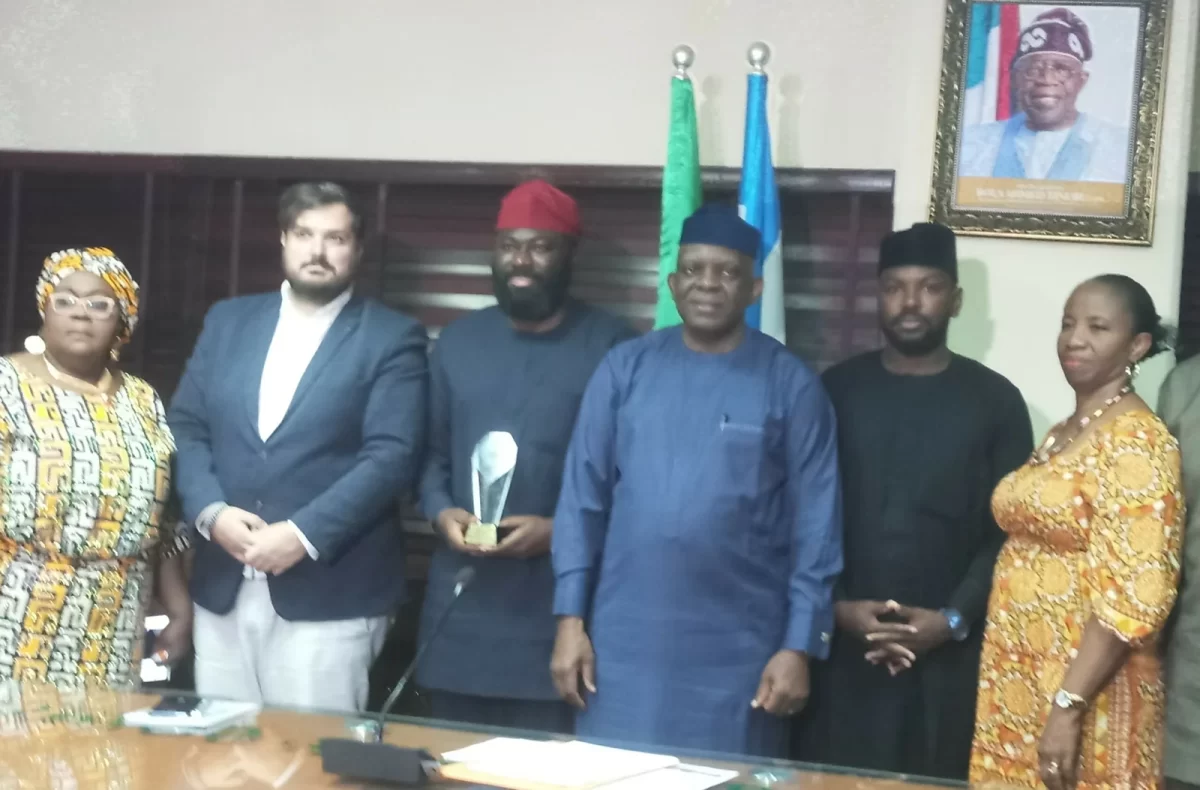
during the International Trade Centre ( ITC) visit to the Nigerian Shippers’ Council in Lagos on Friday.
The Executive Secretary, Nigerian Shippers’ Council (NSC), Mr Pius Akutah, said the council would collaborate with the International Trade Centre on border trade transportation study to facilitate trade in West and Central African region.
Akutah made the disclosure during the International Trade Centre ( ITC) visit to the Council Headquarters in Lagos on Friday.
He said that the study would further strengthen the council’s ability to get statistics to plan.
Akutah said the study would help Nigeria to export more agricultural produce and improve more on trade facilitation.
He commended ITC for partnering with NSC on the study, which would focus more on stakeholders and the challenges on exports facing the region.
“In this current dispensation, where Mr President created Ministry of Marine and Blue Economy, focus is on how non-oil sector in the export business can be developed.
“The focus is on trade, which will further strengthen the country’s ability and capacity.
“The study will enable them to get statistics of trade volume in Nigeria while the study would focus more on agricultural produce, Nigeria being an agricultural state.
“The study will help us to plan and develop more skills for export,” Akutah said.
He assured the management of the centre of the council’s support by making available staff to assist them in achieving quick result in the study.
He said that Nigeria had counterparts in Benin Republic and other parts of the West and Central African countries.
He hailed the partnership with ITC to share ideas and work together, adding that the Nigerian government had signed an agreement with the neighbouring countries to facilitate trade.
According to him, the shippers council is the first to establish the Trade Border Information Centre at Seme Border krake to facilitate inter border trade.
The Associate Programme Officer, International Trade Center, Mr Timothee Bruneteau, said the study would provide solutions to facilitate trade around West and Central Africa.
Bruneteau said that the partnership with the Nigerian Shippers’ Council would provide good results that had been expected for many years.
“We are going to look at the existing solution to make them achieve maximum utilisation in Nigeria.
” Seme border has the largest strategic corridor that access all the West Africa.
“The study will be conducting solution and palliating record as well as discuss the reaction to what they had been able to do in Benin Republic,” Bruneteau said.
Assistant Programme Officer, ITC, Mr Richard Eke-Metoho, said ITC was implanting Economic Community of West Africa States (ECOWAS) Agricultural Trade Programme study for improvement.
Eke-Metoho said ITC study would improve inter border trade, especially in the countries under the programme.
“We are here to collect experience from the Nigerian Shippers’ Council; we have already visited the Border Information Centre established by the council.
” The council collects and manages information across border traders, especially along border areas.
“We are here to get information on the mandate, especially trade facilitation.
“We intend to find out from the council about facilitation measures to improve upon,” Eke-Metoho said.
He said that the committee would be able to develop a report that would key in all the obstacles transporters faced along the border areas and recommendations.
The Technical Advisor, ECOWAS Agricultural Trade Programme (EAT), Mr Kabir Hassan, said they would include all the challenges highlighted by the stakeholders on food insecurity and high price of doing business within the region.
Hassan said the report of malnutrition at the ECOWAS region led to the development of the programme, adding that the study would propose solutions.
He said that it had become necessary to work on the already existing structure within the efforts of ECOWA as well as its members states.
Hassan said the study would also enable them to form decision and advise ECOWAS body on various solutions to implement and jointly address across the region.
The Managing Director, XPT Logistic, Mr Kola Awe, a freight forwarder, said they faced the challenges of ECOWAS documentation and exporting perishable items.
Awe said transporters encountered lots of obstacles within Nigerian roads as well as along the border areas.
Awe called for the establishment of more Truck Transit Parks along Benin Republic and also in Nigeria.
The Managing Director, Peal and Real Dev., Princess Layo Bakare-Okeowo, urged NSC
to assist in reducing the cost of the ECOWAS Trade Liberalisation Scheme (ETLS) to encourage more exporters along border trade.
The Managing Director, OKLAN Best Logistic, Mrs Elizabeth Nwankwo, urged for more harmonisation of how to handle women engaging in border trade.
Nwankwo said that the government should begin to focus on the women traders along the border trade and come up with a ticket to help it to collect data.
She said that more non educated women were attracted to border trade and making money without proper capturing of their activities.
“Government should establish cooling van to put perishable items in baskets for proper documentation.
“Government should create scanners at the border stations to reduce corruption among the officers,” Nwankwo said.
A member of West Africa Cross Border Trade, Mr Isiaka Gbadesere-Saibu, lamented on explosion and unnecessary delay by some security agencies across the border, which damaged their perishable export goods.















